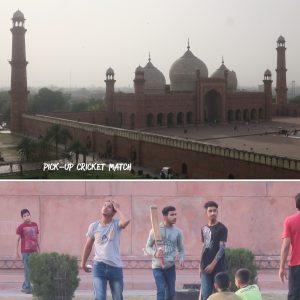There truly is nothing like a well-planned and structured sabbatical for giving professors the intellectual and emotional space to reflect on and crystallize what their previous five to six years of long days and hard work has been most fundamentally about.
This is why, in my view, where they still exist, the sabbatical should be strongly defended. And, where they don't exist or have been cancelled, the possibility of taking sabbaticals SHOULD be (re)introduced for all faculty toiling in the fields of academe.
Sabbaticals should also be extended to as many different sectors as possible, naturally with conditions, caveats and strict planning. I have been privileged to have four sabbaticals, which were most definitely NOT holidays. They have allowed me to make significant pivots in both my research and teaching and to do strategic planning for the next few years.
At this point in my nearly 30 years-long career as a professor and nearly 40 years of field biology experience, I wear multiple "expert" hats. And that is as it should be. But, I never would have guessed during my last sabbatical (2011-12), that my research, teaching and praxis in public science and science communication would emerge as colleagues' and students' top interest during my next (this current) sabbatical.
Pop up seminar by the wonderful @dawnbazely on effective science communication! #scicomm #WomenInSTEM #phdchat @Monash_Science pic.twitter.com/NKHU6ulPpY
— Monash BiolPostgrad (@PostGradBiol) April 19, 2018
I honestly thought that I would have a lot more interactions about my research into forest ecology and management or fungal endophytes of grasses. While I did present on these research areas, as well as on my new research into the history of botany in Ontario, my work with science communication and social media grabbed the most attention.
When administrators gives you lemons🍋🍋... turn them into improved Team Science Outreach lemonade
In 2014, I came off seven years and four terms as director of York University's Institute for Research and Innovation in Sustainability (IRIS). I actually resigned two months before the end of my last term, when the VP research, supported by the former Dean of Environmental Studies, very unwisely in my and many other's opinion, chose to close the institute. This was in opposition to the recommendations of their own external reviewers. Their actions, which were not a good look for senior, highly-paid university administrators, have informed my recent research.
When my IRIS "secondment" ended, I returned to the Biology Department, where I did lots of undergraduate teaching and picked up my forest and grass ecology research. I also continued my research into science-policy-politics, especially climate change, which I had expanded at IRIS.
In my newer research areas, I began to study and reflect on systemic and institutional barriers to interdisciplinarity, for which the actions of York University administrators provided an excellent case study. This led to a re-invigoration of my long-term advocacy for women in STEM, and equity, diversity and inclusivity in science. In my recent writing and action research, I have linked this to my work with open access, citizen science and public science.
I had been active in many of these latter areas at the intersection of science, policy and politics in the 1980s, when I was a graduate student. In my recent research, I have been mapping the links between interdisciplinarity, transdisciplinarity and inclusivity (EDI) in the science-policy-politics space.
When I examine how higher education policy is formed and rolled out in Canada, it's quite evident that senior administrators, who fancy themselves as leaders, increasingly function as unsupportive bottlenecks. Furthermore, I have often observed them to be quite ignorant about the higher education-policy-politics space, and cutting-edge thinking about EDI and all the wicked problems facing the world.
I Found Strong Interest in #SciComm among Faculty and Students
In addition to talks on science communication with social media, I gave three workshops on science communication at Visva Bharati University. This included an Ada Lovelace Day wikipedia editathon.
Below, I'm with colleagues and students at Lahore's University of Education last week. This talk and another one at Government College University in Lahore, followed a pop-up workshop in Australia, at Monash University (above).
Both sabbaticals and the freedom to follow unexpected routes in investigator-driven research and practice are a big part of what drives innovation in higher education. When these practices are not supported by policy, politics and the public, all segments of society lose out in some way.


